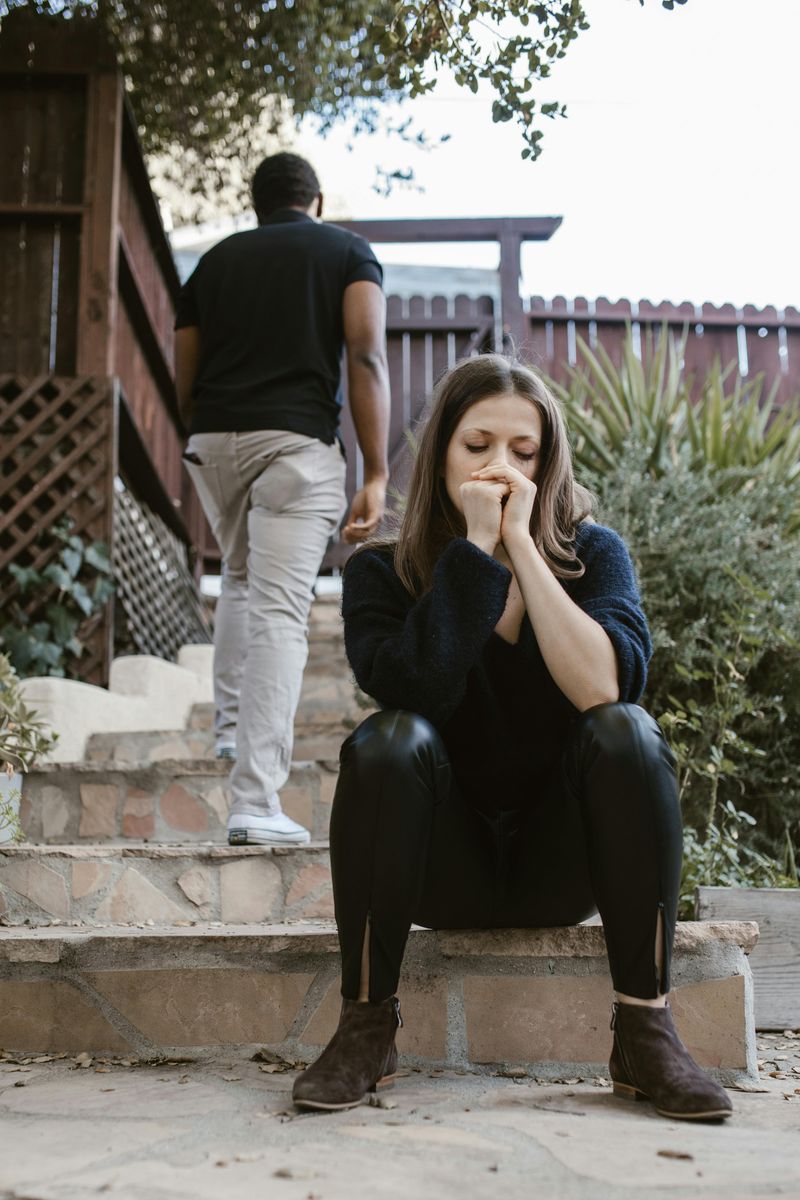8 Signs You’re Just a Rebound—and How to Heal From It

Breakups can leave us feeling lonely and desperate for connection. Sometimes, we jump into new relationships too quickly, not realizing we’re using someone else to heal our broken hearts. Being someone’s rebound can hurt deeply, but spotting the warning signs early can save you from more heartache down the road.
1. It Started Right After a Breakup

Timing reveals everything in new relationships. When someone jumps from one relationship straight into another, they’re often seeking a bandage for their emotional wounds rather than a genuine connection with you.
People need time to process feelings, reflect on past mistakes, and heal properly. Without this crucial breathing room, unresolved emotions from their previous relationship will inevitably spill into yours.
Ask yourself: Did your partner take any time to be single between relationships? If weeks or even days separated their breakup and your first date, proceed with caution. They might be using your presence to avoid facing the pain of their loss rather than truly seeing and appreciating you.
2. You’re Still Emotionally Attached to Your Ex

Your heart hasn’t fully closed one chapter before starting another. You catch yourself scrolling through your ex’s social media at 2 AM, comparing your new partner’s habits to theirs, or feeling a surge of emotion when their name comes up in conversation.
These lingering attachments create an invisible third person in your current relationship. Whether it’s anger, longing, or confusion, these unresolved feelings prevent you from being emotionally available to someone new.
Notice how often your ex occupies your thoughts. If you’re mentally checking out during dates to wonder what your ex is doing, or if you feel the need to mention them in conversations, you’re likely in rebound territory. True healing requires facing these emotions rather than masking them with a new relationship.
3. The Relationship Feels Rushed

You’ve barely learned each other’s middle names, yet you’re already meeting families, leaving toothbrushes at each other’s places, or discussing moving in together. This unnatural acceleration often masks insecurity rather than signaling genuine connection.
Healthy relationships develop at a pace that allows both people to build trust gradually. When someone is rebounding, they often try to recreate the comfort and familiarity of their previous relationship without doing the foundational work.
Pay attention to whether major relationship milestones are happening before you’ve had time to truly know each other. If you’re feeling pressured or dizzy from the pace, it might be because your partner is trying to fast-forward through the uncertainty of being newly single rather than savoring the discovery phase with you.
4. You’re Using the Relationship to Distract Yourself

Evenings that would otherwise be spent crying or processing your breakup are now filled with dates and texts. The relationship serves as the perfect painkiller – when you’re together, you don’t have to face your feelings or sit with the discomfort of healing.
This pattern creates a dangerous dependency. Rather than developing healthy coping mechanisms or learning from past relationship patterns, you’re using another person as emotional novocaine. The distraction works temporarily, but the underlying wounds remain untreated.
Reflect honestly on your motivations. Are you genuinely interested in knowing this person, or are you more interested in not being alone? If the thought of taking a week apart fills you with panic rather than simple disappointment, your relationship might be functioning as an escape route from necessary emotional work.
5. Your Connection Feels Superficial

Chemistry sizzles between you, but something deeper seems missing. Conversations rarely venture beyond surface topics, and physical attraction substitutes for emotional intimacy. Despite spending considerable time together, you realize you know surprisingly little about each other’s dreams, fears, or values.
Rebound relationships often prioritize form over substance. The comfort of having someone – anyone – can temporarily outweigh the need for genuine compatibility. You might notice your time together revolves around activities that prevent deeper connection: constant movies, parties, or physical intimacy without meaningful conversation.
Ask yourself whether you’re truly seen and understood by this person. Can you be vulnerable with them? Do they know the real you? If your relationship feels like an extended first date even months in, you might be filling roles for each other rather than forming an authentic bond.
6. You Avoid Talking About Your Past

Mention of previous relationships triggers immediate tension. Either you or your partner changes the subject, becomes defensive, or shuts down completely when exes or past heartbreaks come up. This communication barrier creates an artificial relationship bubble where certain topics remain forbidden territory.
Healthy relationships involve openness about past experiences – not obsessive discussion, but comfortable acknowledgment. When someone hasn’t processed their breakup, even casual mentions of their ex can unleash unresolved emotions they’re not ready to handle.
Notice how both of you navigate conversations about the past. If there’s a mutual understanding to pretend certain people or relationships never existed, you’re building on a foundation of avoidance rather than honesty. True intimacy requires the freedom to bring your whole history – including past loves and lessons – into your current relationship without fear.
7. You Don’t See a Long-Term Future

Something stops you from fully imagining this relationship lasting. When friends ask where things are headed, you give vague answers. Future plans remain theoretical rather than concrete, and you experience a disconnect between enjoying the present and believing in a shared tomorrow.
Your intuition often recognizes a rebound before your conscious mind catches up. That nagging feeling that this relationship has an expiration date isn’t necessarily about commitment issues – it might be your inner wisdom recognizing that one or both of you aren’t emotionally ready for something enduring.
Check in with yourself about how you envision the coming years. Do you naturally include this person in those mental pictures? If the relationship feels like a chapter rather than potentially part of your life story, you might be in a transitional connection rather than one with lasting potential. Listen to that inner voice instead of dismissing it.
8. Your Friends or Family Are Concerned

The people who know you best have started asking careful questions. “Are you sure about this?” they wonder. “Isn’t this moving a bit fast?” Their concerns aren’t coming from judgment but from noticing patterns you might be too close to see.
Outside perspectives often provide clarity when we’re wrapped up in new relationship energy. Your loved ones observe how you’ve changed, whether your needs are being met, and if this relationship seems to be healing or further wounding you after your breakup.
Rather than dismissing their concerns as interference, try to hear them with an open heart. If multiple people who want the best for you are expressing similar worries, they might be noticing red flags that your heart is currently bypassing. True friends don’t try to sabotage your happiness – they want to protect you from unnecessary pain when you’re vulnerable.

Comments
Loading…